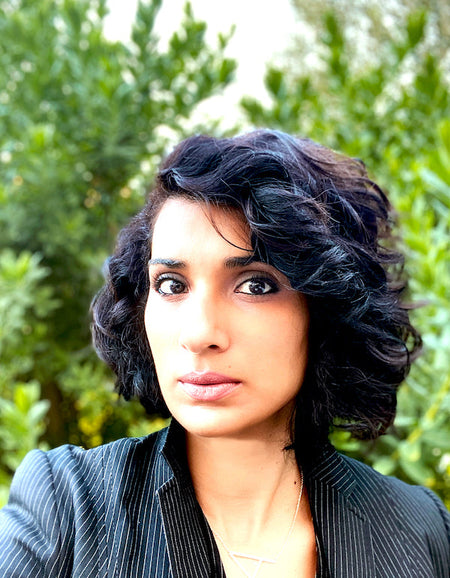In February of 2020, right before the Pandemic wreaked havoc upon our world, I set out from New York City to the heart of the Amazon Rainforest. Naturally, Siri failed at directions deplorably. Three flights, a car ride to the dock, followed by a seven hour bumpy boat ride up a choppy and turbulent Amazon, delivered me to a tributary, the Macacoari River, where I visited the Macacoari school, an intimate, family run establishment. In addition to teaching the children the standard curriculum, the school also taught them about agroforestry, holistic business practices, and the value of protecting endemic biodiversity and ecosystem services.
While most companies look to destroy indigenous natural abundance for the sake of profit, (i.e. timber industry, livestock ranching, and agriculture) harvesting Açaí and other local wild fruits rich in antioxidants and nutrients, provides a more sustainable economic alternative to locals. This is why I dedicated my time to creating a mini-series called “Delicious Powers: The Positive Impact of Açaí", in which I explored how a conscientious enterprise such as SAMBAZON - an acronym that stands for the Sustainable Management of the Brazilian Amazon.
SAMBAZON’s business model is triple bottom line driven, as their solution relies on wild-harvested crops, which tend to be hardy and self-sustaining if managed mindfully and not exploited avariciously. This creates a win-win-win premise by 1. providing long term job stability and income generation for the local communities, 2. helping preserve the Amazon Rainforest and its biodiversity for future generations, and 3. promoting consumer health and wellness. The brand gives back to the growers and harvesters by ensuring fair pricing and consistency of wages, but they also ensure that the forest retains its intrinsic value, genetic resilience and ecological integrity. Reframing a standing forest as more economically valuable than a cut down landscape is how we uncover the nexus between community, conservation and commerce.

I got to witness SAMBAZON’s mission unfold in person in Macacoari, Macapá and Pará, which gave me true insight into what the corporation means when it uses the term “Fair Trade.” When a company does right by its stakeholders, it is evident in the smiles worn by their workers, in the pride their staff emote when speaking about their contribution to the company’s value chain and in the way they all relish in the end products they each helped co-create. SAMBAZON masterfully incentivizes over 20,000 family farmers to come together and work towards a common goal both sustainably and symbiotically.
SAMBAZON also guarantees a minimum price for all of its producers. I experienced first hand how selling harvested Açaí through the market seldom guaranteed buyers or a set price for a sale. It was painful to hear workers describe the uncertainty they faced before SAMBAZON came along, as they would spend the same amount of time and energy collecting berries two weeks in a row and one week they would sell all of their produce and the next week they would earn nothing and all the berries gathered would go to waste. Certified companies like SAMBAZON thus ensure stability through security of pay, even during difficult times where demand might diminish.
SAMBAZON also promotes local autonomy in decision making by investing 5% of its fruit purchases back into the communities where the fruit was procured. This allows locals to discern for themselves where the money should be allocated, whether it is for a healthcare center, a school or a community center.
While many consumers are skeptical of how large brands can maintain true north while resolving conflicting agendas between stakeholders and shareholders, there are plenty of companies that evidence how their intrinsic alignment with sustainability and constant engagement with all their contributors results in tangible prosperity. Each year the brand advances its mission alignment with new programs, in 2021 the company funded the construction of a community center that various nonprofit organizations operating in the region can utilize for their programs and projects. SAMBAZON strives to serve beyond the scope or expectation of industrial democracy, by not only mandating fair wages, protective equipment, zero-tolerance policies for child labor, exploitative practices, sexual harassment, and freedom of association regardless of country laws or norms, but by helping build additional opportunities for the people who help shape the organization. For instance, I found out that 90% of the Açaí fruit is actually seed, and SAMBAZON repurposes this byproduct of their manufacturing process into fuel.
SAMBAZON’s core principles are rooted in one word: respect. Respect for human rights, fair wages, safe working conditions, the ecosystems they source their raw ingredients from, the biodiversity inhabiting the landscapes they harvest, the local communities they work with, and the sustainable agricultural practices that safeguard the resources they rely on for future generations to benefit from.
By reinvesting into the communities that help grow, harvest, process and distribute their product, SAMBAZON establishes a meaningful culture of belonging and support that bolsters brand equity, employee morale, consumer confidence and shareholder loyalty.

In a world riddled with doom and gloom media, I hope this piece serves as a beacon of hope and a source of inspiration to those looking for an uplifting story. Here is a company that embodies the tenets of Human Rights Day, December 10th 2022. This day marks the launch of a year-long campaign for Human Rights by the United Nations that will commemorate the 75th anniversary of the Universal Declaration of Human Rights.
Sidebar: Human Rights are universal, indivisible, inalienable and exercisable by every human being worldwide, to preserve and promote their personal dignity, sovereignty, security and freedom. The right to life, liberty, education, opportunity, work, free speech, and crucially the freedom from slavery, tyranny, torture, oppression, inhumane cruelty, degrading treatment, and punishment. These rights are inherent to all people, irrespective of race, colour, sex, language spoken, religion, national or social origin, capacity for property ownership, birthright or other social and cultural status, political or personal opinion, is qualified as Human Rights.
For many corporations, Human Rights Day, like most other publicly observed political, social and environmental occasions, may just be yet another opportunity to build brand credibility through press and publicity, but for a few truly conscious brands out there, everyday is Human Rights Day, Earth Day, World Wildlife Day, International Women’s Day etc, because the recognition and practice of those truths are implicit to the charter and character of the company.
My trip drew to a close at the Carnival in Rio De Janeiro, where the parade portrayed various environmental themes ailing the world. Take a moment to watch the episodes from the series, which will be shared on both our (@SAMBAZON, @earthheiress) social media channels. This journey to the wondrous landscape of the Brazilian rainforest, proved beyond all doubt that doing good can be good business. To those of you reading this article, bear in mind the power your wallets hold every time you open them to purchase products from businesses that actually operate with integrity, treat their workers fairly and give back to the planet we cohabit. Individually we may each live disparate stories but together we can change the narrative to ensure a collective wild future.








Comments
(0 Comments)Please note, comments need to be approved before they are published.